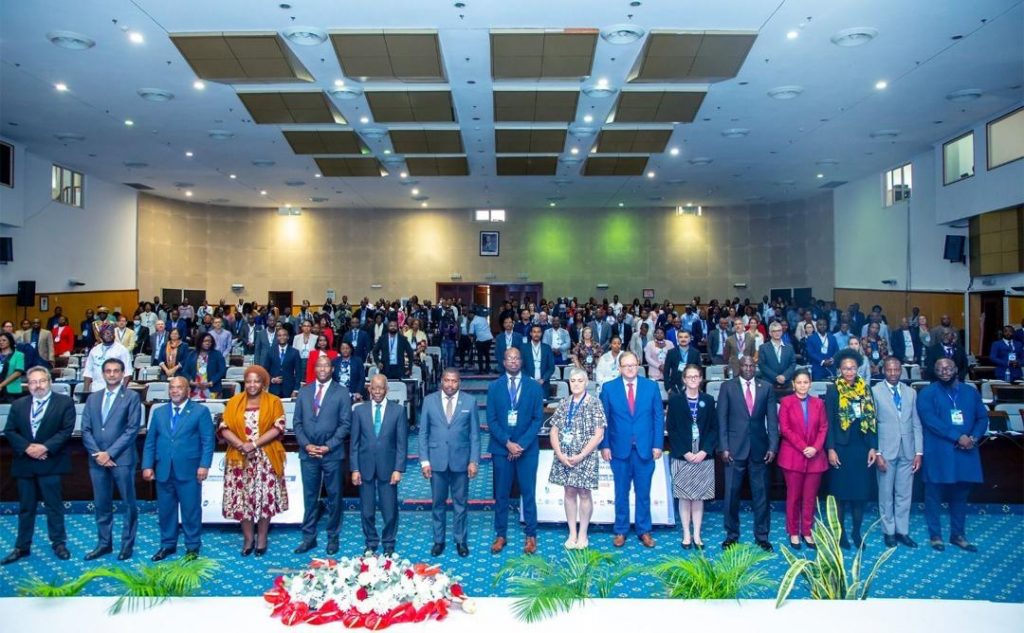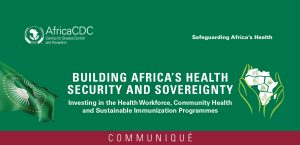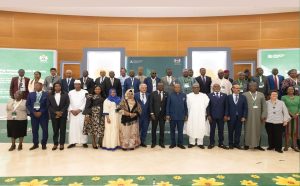African leaders have committed to ending cholera in Southern Africa, which has wreaked havoc in the region over the past three years.
Meeting at the First Conference on Transdisciplinarity for the Elimination of Cholera in Maputo, Mozambique, on July 29, national leaders and health experts took stock of their achievements and identified what needs to be done to end cholera.
The conference, hosted by Mozambique and Africa CDC, aimed to share scientific evidence, discuss innovations, and mobilize regional support for global cholera elimination.
Dr Adriano Maleiane, Prime Minister of Mozambique, officially opened the conference by highlighting the alarming resurgence of cholera in SADC and globally, citing three years of epidemiological data.
He said that between January and March 2024, 94,000 cholera cases were reported worldwide, with Africa accounting for half. He attributed the trend to extreme weather events, poor sanitation, limited clean water access, misinformation, and delayed vaccine access.
President of Zambia and Global Champion for Cholera, H.E. Hakainde Chilema, reaffirmed his commitment to a cholera-free future, praising Mozambique’s leadership and determination.
President Chilema called for local manufacturing of cholera vaccines to enhance accessibility and affordability.
He emphasized the need for investment in water and sanitation infrastructure to prevent cholera outbreaks and cross-border surveillance to detect and respond to cholera cases promptly.
President Chilema commended the collaborative efforts of the Government of Mozambique and Africa CDC in convening the conference, which brought together a diverse range of stakeholders, including health experts, policymakers, WHO, UNICEF, Médecins Sans Frontières, the International Federation of Red Cross and Red Crescent Societies, and the Red Cross.
Speaking on behalf of Africa CDC General Dr Jean Kaseya, the regional director, Dr Lul Riek, said Africa doesn’t need another wake-up call like COVID-19 to understand the urgency of investing in the global health security agenda and pandemic preparedness.
“Let’s strengthen global health infrastructure, invest in preparedness, and prioritize health equity. We can’t afford to wait any longer,” he said.
To eliminate cholera, Dr Riek said countries must work together to address underlying drivers, including water and sanitation infrastructure, poor hygiene, high-risk social practices, surveillance shortcomings, and inadequate healthcare systems.
“We must also tackle these drivers, including climate change, which is exacerbating the cholera crisis, with forecasts predicting more frequent storms, cyclones, and flooding,” he said.
“All these drivers remind us that there is an urgent need to strengthen the One Health approach to link the human, animal, and environmental sectors,” Dr Riek added.
“As the region continues its efforts to eliminate cholera, we must not forget the critical role of local vaccine manufacturing. Producing cholera vaccines locally is essential to reduce Africa’s reliance on international supply chains,” he added.
Africa still imports 99% of its vaccines and over 90% of its medicines and medical devices from outside the continent.
“This is unacceptable; for this reason, Africa CDC is taking the lead for local manufacturing of not only vaccines but also medicines and other medical devices,” said Dr. Riek. In Southern Africa, Mozambique has implemented measures to combat cholera, including real-time surveillance, enhanced laboratory testing capacity, and improved health service quality. Malawi declared the end of a protracted cholera outbreak on July 18, 2024. Zambia and Zimbabwe are also making significant progress in controlling cholera.







